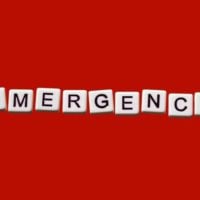Deadline: 27-Sep-22
The European Commission (EC) has announced the proposals for Citizen Science for Soil Health.
Scope
Citizen science is an important vehicle in bringing science to the people and promoting the goal of universal and equal access to scientific data and information. For example, there is a tremendous potential to foster education and learning opportunities through the involvement of students in real world issues. Citizen science also engages society at large in key policy developments through direct participation to assess impacts. Crowdsourced data is being used, for example, by UN agencies for humanitarian activities and citizen scientists are providing data relevant to monitoring the sustainable development goals (SDGs).
Funding Information
The check will normally be done for the coordinator if the requested grant amount is equal to or greater than EUR 500 000, except for:
- public bodies (entities established as a public body under national law, including local, regional or national authorities) or international organisations; and
- cases where the individual requested grant amount is not more than EUR 60 000 (lowvalue grant).
Expected Outcomes
- This topic contributes to the implementation of the Mission 'A Soil Deal for Europe', in particular to its specific objective 8 “Increase soil literacy in society across Member States”.
-
Project results should contribute to all the following outcomes:
- The public's awareness of the value of soil is significantly increased.
- Citizens are empowered to take an active role in science and in increasing the knowledge base on soils by monitoring and gathering data on soil biodiversity and becoming more aware of the importance of soils and the soil food web in their daily lives.
- Greater availability of local scale data on soil health. This will expand and complement established soil databases to support critical landscape decisions and policy development.
Eligibility Criteria
To be eligible for funding, applicants must be established in one of the eligible countries, i.e.:
- the Member States of the European Union, including their outermost regions;
- the Overseas Countries and Territories (OCTs) linked to the Member States;
-
eligible non-EU countries:
- countries associated to Horizon Europe;
- low- and middle-income countries.
For more information, visit European Commission.
For more information, visit https://bit.ly/3yzibEx









































